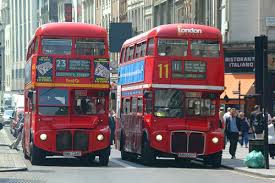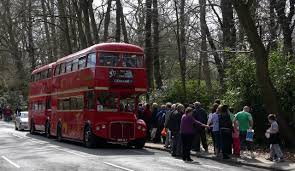
However, a new report says the public transport system is failing societies' oldest and most vulnerable in England.
The Future of Transport in an Ageing Society was compiled by think tank The International Longevity Centre - UK (ILC-UK) and charity Age UK.
The results: millions of older people are faced with travel problems. More than half of over-65s either never use public transport or use it less than once a month, despite being eligible for free bus travel. In fact, the transport system is not currently meeting the needs of the growing older population and those in poor health.
A member of ILC-UK said travel was essential for independent living, and had benefits for people's physical health and mental wellbeing in later life. Source: BBC.
At the moment, London transport bosses are considering an Oxford Street bus ban. For years, businesses have been infuriated by the slow moving “wall of red metal” that clogs Europe’s busiest shopping street. Currently around 270 buses an hour travel down Oxford Street, contributing to the world’s highest recorded concentrations of the harmful gas nitrogen dioxide (NO2).
I have fond memories of shopping in Oxford Street. But that recollection is fading with the passage of time.

The bus stop isn't too far away and offers a wonderful service—that is if a person can negotiate the entry and exit doors. Our local buses have the ability to raise and lower to the kerb so a disabled person can enter without stepping up. But, I've never tried it. Before I reach the bus stop, I'd have to negotiate the footpath which is overgrown to an extent that limits my passage on a busy corner.
Then, I'd have to cross the road. Even when I was working and fairly fit, cars swinging in from the t-junction would almost hit me. Scary. I'm much too slow now.
My only option if I lived alone would be to catch a taxi, at considerable expense.
As I often say, 'never get old'.
Are you confined to your own area, or can you drive wherever you want to go?





 RSS Feed
RSS Feed
